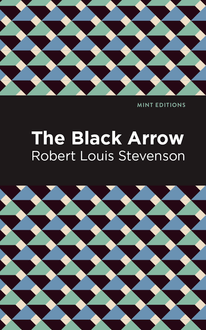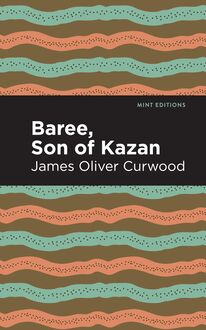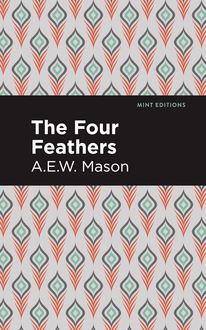-
 Univers
Univers
-
 Ebooks
Ebooks
-
 Livres audio
Livres audio
-
 Presse
Presse
-
 Podcasts
Podcasts
-
 BD
BD
-
 Documents
Documents
-
- Cours
- Révisions
- Ressources pédagogiques
- Sciences de l’éducation
- Manuels scolaires
- Langues
- Travaux de classe
- Annales de BEP
- Etudes supérieures
- Maternelle et primaire
- Fiches de lecture
- Orientation scolaire
- Méthodologie
- Corrigés de devoir
- Annales d’examens et concours
- Annales du bac
- Annales du brevet
- Rapports de stage
La lecture à portée de main
Vous pourrez modifier la taille du texte de cet ouvrage
Découvre YouScribe en t'inscrivant gratuitement
Je m'inscrisDécouvre YouScribe en t'inscrivant gratuitement
Je m'inscrisEn savoir plus
Vous pourrez modifier la taille du texte de cet ouvrage
En savoir plus

Description
The Great White Queen (1896) is an adventure novel by Anglo-French writer William Le Queux. Published at the beginning of Le Queux’s career as a leading author of popular thrillers, The Great White Queen is a story of empire, myth, and war. Using his own research and experience as a journalist and adventurer, Le Queux crafts an accessible, entertaining tale for readers in search of a literary escape. Known for his works of fiction and nonfiction on the possibility of Germany invading Britain—a paranoia common in the early twentieth century—William Le Queux also wrote dozens of thrillers and adventure novels for a dedicated public audience. Although critical acclaim eluded him, popular success made him one of England’s bestselling writers. In The Great White Queen, a boy named Scarsmere is sent to a boarding school by his cold, uncaring uncle. There, he meets an African prince named Omar, and the two become fast friends. Several years later, Omar’s mother, the Naya of Mo, summons the prince back home to his native land. He asks Scarsmere to join him, and though the young Englishman has never left his country before, he feels no obligation to remain in a place where he has no family or friends. Together, the two embark on a journey to the heart of Africa, forging a brotherhood that will keep them alive through countless trials, betrayals, and pitfalls. Caught up in tribal conflict, captured by slave traders, and pursued across a vast, uncharted continent, Omar and Scarsmere make their way to the ancient kingdom of Mo, where the Great White Queen awaits on the Emerald throne. Reminiscent of the works of Edgar Rice Burroughs and H. Rider Haggard, William Le Queux’s The Great White Queen is a thrilling adventure with a cinematic narrative and an ultimately human message. With a beautifully designed cover and professionally typeset manuscript, this edition of William Le Queux’s The Great White Queen is a classic work of adventure fiction reimagined for modern readers.
Sujets
Informations
| Publié par | Mint Editions |
| Date de parution | 21 mai 2021 |
| Nombre de lectures | 0 |
| EAN13 | 9781513285887 |
| Langue | English |
| Poids de l'ouvrage | 1 Mo |
Informations légales : prix de location à la page 0,0500€. Cette information est donnée uniquement à titre indicatif conformément à la législation en vigueur.
Extrait
The Great White Queen
William Le Queux
The Great White Queen was first published in 1896.
This edition published by Mint Editions 2021.
ISBN 9781513280868 | E-ISBN 9781513285887
Published by Mint Editions ®
minteditionbooks.com
Publishing Director: Jennifer Newens
Design & Production: Rachel Lopez Metzger
Project Manager: Micaela Clark
Typesetting: Westchester Publishing Services
C ONTENTS I. A R OMANCE ! II. O MAR ’ S S LAVE III. O UTWARD B OUND IV. A S TRANGE P ROMISE V. T HE G IANT ’ S F INGER VI. T HE R OYAL J UJUS VII. S AMORY ’ S S TRONGHOLD VIII. T HE S ECRET OF THE Q UEEN IX. C ONDEMNED TO THE T ORTURE X. Z OMARA XI. T HE H UMAN S ACRIFICE XII. I N THE S ACRED G ROVE XIII. T HE W AY OF THE T HOUSAND S TEPS XIV. F OES XV. A N ATURAL G RAVE XVI. W ORDS OF F IRE XVII. A S ALUTE OF B ULLETS XVIII. T HE M YSTERIOUS R EALM XIX. T HE C ITY IN THE C LOUDS XX. T HE G REAT W HITE Q UEEN XXI. A F IGURE IN THE S HADOW XXII. T O THE U NKNOWN XXIII. U NDER THE V AMPIRE ’ S W ING XXIV. T HE F LAMING M OUTH XXV. L IOLA XXVI. T HE F IRST B LOW XXVII. B Y THE N AYA ’ S O RDERS XXVIII. T HE F IGHT FOR THE E MERALD T HRONE XXIX. A M YSTERY XXX. T REASURE AND T REASON XXXI. A S PY ’ S S TARTLING S TORY XXXII. W AR XXXIII. T HE H AREM S LAVE XXXIV. L IOLA ’ S D ISCOVERY XXXV. I NTO THE M IST C ONCLUSION
I
A R OMANCE !
It is a curious story, full of exciting adventures, extraordinary discoveries, and mysteries amazing.
Strange, too, that I, Richard Scarsmere, who, when at school hated geography as bitterly as I did algebraic problems, should even now, while just out of my teens, be thus enabled to write down this record of a perilous journey through a land known only by name to geographers, a vast region wherein no stranger had ever before set foot.
The face of the earth is well explored now-a-days, yet it has remained for me to discover and traverse one of the very few unknown countries, and to give the bald-headed old fogies of the Royal Geographical Society a lesson in the science that I once abominated.
I have witnessed with my own eyes the mysteries of Mo. I have seen the Great White Queen!
Three years ago I had as little expectation of emulating the intrepidity of Stanley as I had of usurping the throne of England. An orphan, both of whose parents had been drowned in a yachting accident in the Solent and whose elder brother succeeded to the estate, I was left in the care of a maternal uncle, a regular martinet, who sent me for several long and dreary years to Dr. Tregear’s well-known Grammar-school at Eastbourne, and had given me to understand that I should eventually enter his office in London. Briefly, I was, when old enough, to follow the prosaic and ill-paid avocation of clerk. But for a combination of circumstances, I should have, by this time, budded into one of those silk-hatted, patent-booted, milk-and-bun lunchers who sit on their high perches and drive a pen from ten till four at a salary of sixteen shillings weekly. Such was the calling my relative thought good enough for me, although his own sons were being trained for professional careers. In his own estimation all his ideas were noble and his generosity unbounded; but not in mine.
But this is not a school story, although its preparatory scenes take place at school. Some preparatory scenes must take place at school; but the drama generally terminates on the broader stage of the world. Who cares for a rehearsal, save those who have taken part in it? I vow, if I had never been at Tregear’s I would skip the very mention of his name. As it is, however, I often sigh to see the shadow of the elms clustering around the playground, to watch the moonbeans illumine the ivied wall opposite the dormitory window. I often dream that I am back again, a C æ sar-hating pupil.
Dr. Tregear, commonly called “Old Trigger,” lived at Upperton, a suburb of Eastbourne, and had accommodation for seventy boys, but during the whole time I remained there we never had more than fifty. His advertisements in local and London papers offering “Commercial training for thirty guineas including laundress and books. Bracing air, gravel soil, diet best and unlimited. Reduction for brothers,” were glowing enough, but they never whipped up business sufficiently to attract the required number of boarders. Nevertheless, I must admit that old Trigger, with all his faults and severity, was really good-hearted. He was a little sniffing, rasping man, with small, spare, feeble, bent figure; mean irregular features badly arranged round a formidable bent, broken red nose; thin straggling grey hair and long grey mutton-chop whiskers; constantly blinking little eyes and very assertive, energetic manners. He had a constant air of objecting to everything and everybody on principle. Knowing that I was an orphan he sometimes took me aside and gave me sound fatherly advice which I have since remembered, and am now beginning to appreciate. His wife, too, was a kindly motherly woman who, because being practically homeless I was often compelled to spend my holidays at school, seemed better disposed towards me than to the majority of the other fellows.
Yes, I got on famously at Trigger’s. Known by the abbreviated appellation of “Scars,” I enjoyed a popularity that was gratifying, and, bar one or two sneaks, there was not one who would not do me a good turn when I wanted it. The sneaks were outsiders, and although we did not reckon them when we spoke of “the school,” it must not be imagined that we forgot to bring them into our calculations in each conspiracy of devilment, nor to fasten upon them the consequences of our practical jokes.
My best friend was a mystery. His name was Omar Sanom, a thin spare chap with black piercing eyes set rather closely together, short crisp hair and a complexion of a slightly yellowish hue. I had been at Trigger’s about twelve months and was thirteen when he arrived. I well remember that day. Accompanied by a tall, dark-faced man of decided negroid type who appeared to be ill at ease in European clothes, he was shown into the Doctor’s study, where a long consultation took place. Meanwhile among the fellows much speculation was rife as to who the stranger was, the popular opinion being that Trigger should not open his place to “savages,” and that if he came we would at once conspire to make his life unbearable and send him to Coventry.
An hour passed and listeners at the keyhole of the Doctor’s door could only hear mumbling, as if the negotiations were being carried on in the strictest secrecy. Presently, however, the black man wished Trigger good-day, and much to everyone’s disgust and annoyance the yellow-faced stranger was brought in and introduced to us as Omar Sanom, the new boy.
The mystery surrounding him was inscrutable. About my own age, he spoke very little English and would, in conversation, often drop unconsciously into his own language, a strange one which none of the masters understood or even knew its name. It seemed to me composed mainly of p’s and l’s. To all our inquiries as to the place of his birth or nationality he remained dumb. Whence he had come we knew not; we were only anxious to get rid of him.
I do not think Trigger knew very much about him. That he paid very handsomely for his education I do not doubt, for he was allowed privileges accorded to no one else, one of which was that on Sundays when we were marched to church he was allowed to go for a walk instead, and during prayers he always stood aside and looked on with superior air, as if pitying our simplicity. His religion was not ours.
For quite a month it was a subject of much discussion as to which of the five continents Omar came from, until one day, while giving a geography lesson the master, who had taken the West Coast of Africa as his subject, asked:
“Where does the Volta River empty itself?”
There was a dead silence that confessed ignorance. We had heard of the Russian Volga, but never of the Volta. Suddenly Omar, who stood next me, exclaimed in his broken English:
“The Volta empties itself into the Gulf of Guinea. I’ve been there.”
“Quite correct,” nodded the master approvingly, while Baynes, the fellow on my left, whispered:—
“Yellow-Face has been there! He’s a Guinea Pig—see?”
I laughed and was punished in consequence, but the suggestion of the witty Baynes being whispered round the school was effective. From that moment the yellow-faced mysterious foreigner was commonly known as “the Guinea Pig.”
We did our best to pump him and ascertain whether he had been born in Guinea, but he carefully avoided the subject. The information that he came from the West Coast of Africa had evidently been given us quite involuntarily. He had been asked a question about a spot he knew intimately, and the temptation to exhibit his superiority over us had proved too great.
Not only was his nationality a secret, but many of his actions puzzled us considerably. As an instance, whenever he drank anything, water, tea, or coffee, he never lifted his cup to his lips before spilling a small quantity upon the floor. If we had done this punishment would promptly have descended upon us, but the masters looked on at his curious antics in silence.
Around his neck beneath his clothes he wore a sort of necklet composed of a string of tiny bags of leather, in which were sewn certain hard substances that could be felt inside. Even in the dormitory he never removed this, although plenty of chaff was directed towards him in consequence of this extraordinary ornament. It was popularly supposed that he came from some savage land, and that when at home this string of leather bags was about the only article of dress he wore.
If rather dull at school, he very soon picked up our language with all its slang, and quickly came to the fore in athletics. In running, swimming and rowing no one could keep pace with him. On foot he was fleet as a deer, and
-
 Univers
Univers
-
 Ebooks
Ebooks
-
 Livres audio
Livres audio
-
 Presse
Presse
-
 Podcasts
Podcasts
-
 BD
BD
-
 Documents
Documents
-
Jeunesse
-
Littérature
-
Ressources professionnelles
-
Santé et bien-être
-
Savoirs
-
Education
-
Loisirs et hobbies
-
Art, musique et cinéma
-
Actualité et débat de société
-
Jeunesse
-
Littérature
-
Ressources professionnelles
-
Santé et bien-être
-
Savoirs
-
Education
-
Loisirs et hobbies
-
Art, musique et cinéma
-
Actualité et débat de société
-
Actualités
-
Lifestyle
-
Presse jeunesse
-
Presse professionnelle
-
Pratique
-
Presse sportive
-
Presse internationale
-
Culture & Médias
-
Action et Aventures
-
Science-fiction et Fantasy
-
Société
-
Jeunesse
-
Littérature
-
Ressources professionnelles
-
Santé et bien-être
-
Savoirs
-
Education
-
Loisirs et hobbies
-
Art, musique et cinéma
-
Actualité et débat de société
- Cours
- Révisions
- Ressources pédagogiques
- Sciences de l’éducation
- Manuels scolaires
- Langues
- Travaux de classe
- Annales de BEP
- Etudes supérieures
- Maternelle et primaire
- Fiches de lecture
- Orientation scolaire
- Méthodologie
- Corrigés de devoir
- Annales d’examens et concours
- Annales du bac
- Annales du brevet
- Rapports de stage




















